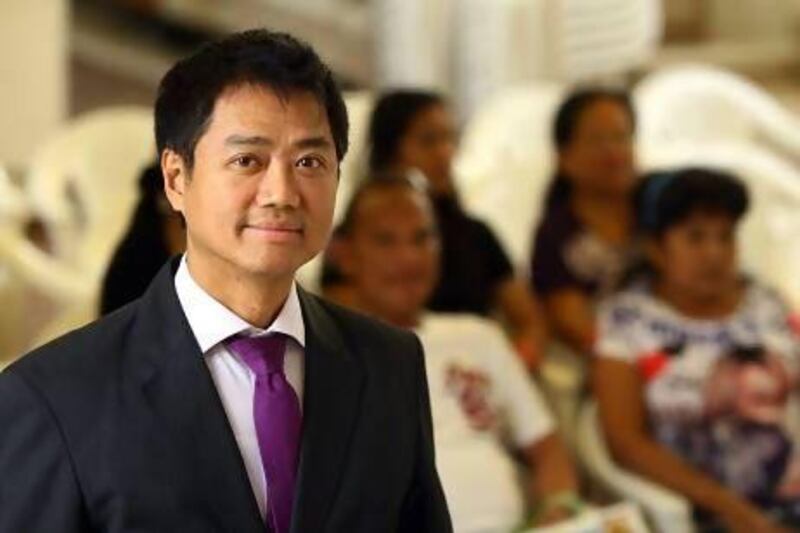Filipinos who leave their families to work abroad should set financial goals instead of simply sending remittances for month-to-month expenses, a finance expert advises.
"It's very common for an overseas Filipino worker to leave the Philippines without any plan or goal for his family," said Edgar Bacason, 50, a finance manager at a law firm who has lived in Dubai for 10 years.
"It's been happening for so many years here in the UAE, yet no one took any action until the launch of Pinoy Wise Movement."
The movement was created by Atikha, a non-governmental organisation that provides economic and social services to Filipinos working overseas and their families at home.
The UAE was chosen as the pilot country for Pinoy Wise because of the large number of Filipinos and the support of the Philippines government. It launched in November last year.
Mr Bacason, the coordinator of the movement's "train the trainers" events in Dubai and the Northern Emirates, said their target was to reach out to as many Filipinos as possible by November, the first anniversary of the launch.
"We plan to conduct more of these train the trainers sessions, at least once a month," he said. "We'll start off with Sharjah on the third week of September."
An agreement in support of Pinoy Wise was signed on Saturday by representatives of the Philippine embassy, the Philippine overseas labour office, banks, exchange houses, courier companies and real-estatecompanies.
It follows a three-day training event in Abu Dhabi and Dubai that ran from Thursday to Saturday.
The labour office in Dubai is now pushing to increase the financial literacy of Filipinos, and prepare them to reintegrate with their communities when they return.
"To achieve this, it will be a collaboration between the private and public sector," said Delmer Cruz, the labour attache in Dubai.
"We have a huge Filipino population in Dubai and the Northern Emirates - about 400,000 - so this initiative is a welcome move."
At the training event, participants discussed migrants' financial situation, the concept of savings and investments, setting goals, group counselling and tips on how to conduct training.
Topics during the second session included getting out of debt, issues affecting migrants' families and the basic concepts of saving, investing and borrowing, as well as the various investment instruments that Filipinos could utilise.
Migrant workers need to maximise their financial gains and minimise the social costs, Mr Bacason said. These include a dependency on remittances, consumerism and a communications gap between the migrant and family left behind.
"Financial literacy is just part of the Pinoy Wise Movement," Mr Bacason said. "Of equal importance is addressing the impact of migration and providing psychosocial intervention."
Atikha aims to help address the perceived social cost of migration and provides training to migrants and their families.
"It's never too late to start to make some changes," Mr Bacason said. "Maybe we can change the mentality and attitude of Filipinos here through our training sessions.
"We should first look into the cause of the problem, provide possible solutions and then focus on savings and investment options."






